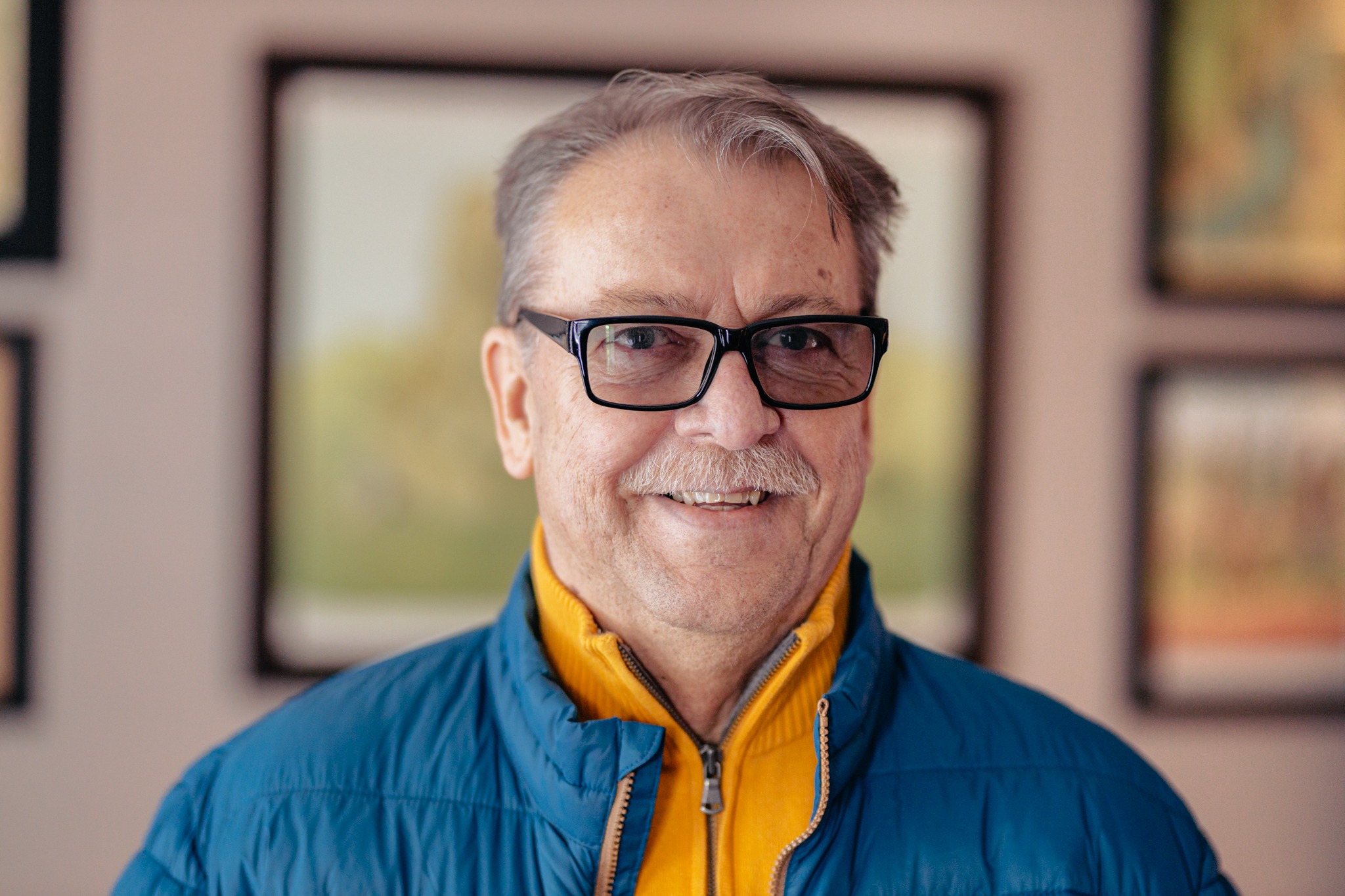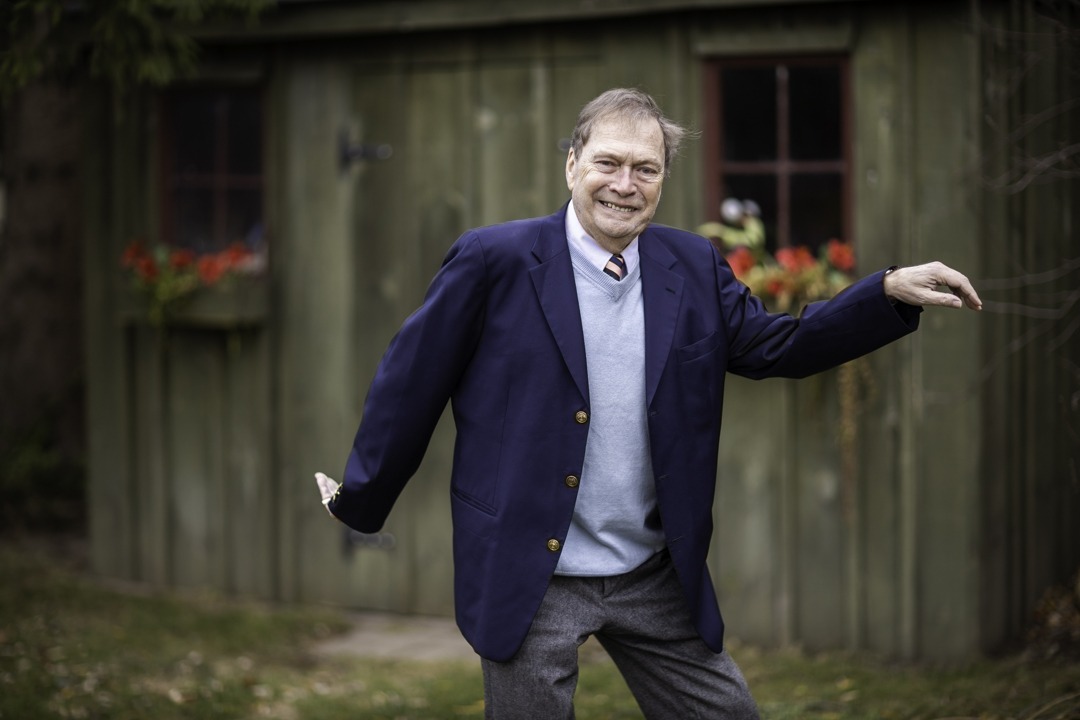
“I feel like the luckiest guy ever.”
Retired high school teacher Ted Aylan-Parker is deeply committed to helping others. It’s what motivated the Caledonia man to become an educator, spending much of his career as a guidance counsellor at an inner-city Hamilton school.
His many years of community volunteer work earned him both a Citizen of the Year Award and Lifetime Achievement Award from his town’s Chamber of Commerce – recognition he received jointly with his wife Pam.
And after being diagnosed with advanced lung cancer almost five years ago, Aylan-Parker gave back once again – this time to medical research by participating in a clinical trial at Hamilton Health Sciences’ (HHS) Juravinski Hospital and Cancer Centre (JHCC), aimed at improving survival rates for Stage 4 lung cancer patients.
“I figured that if cancer was going to get me, I might as well help the medical community learn more about treating this disease,” says Aylan-Parker, 75, who was treated with radiation, chemotherapy, and CyberKnife radiosurgery for the brain tumor that developed due to his cancer spreading. “I’m very grateful for the excellent treatment I received from everyone at the hospital.”
Aylan-Parker joined a clinical trial called IND226 in March, 2016. Nearly five years after joining the trial, he’s still doing well.
Groundbreaking cancer research
“Cancer can send signals to the body saying it’s a friend”
The IND226 trial was launched in 2015 at Canadian hospitals including the JHCC. The goal for physicians is to find out whether chemotherapy and immunotherapy drugs could be safely combined to improve outcomes for Stage 4 lung cancer patients.
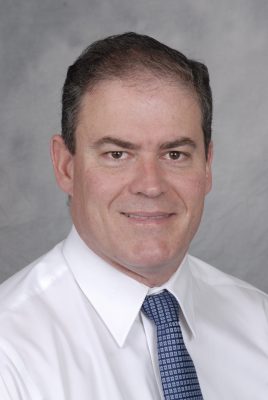
Dr. Peter Ellis is head of medical oncology for Hamilton Health Sciences
“Cancer can send signals to the body saying it’s a friend, allowing it to hide from the immune system,” says Dr. Peter Ellis, head of medical oncology for HHS. “These new treatments work by blocking that signaling, and helping the body’s immune system to more effectively fight the cancer.”
This trial was run through the Canadian Cancer Trials Group (CCTG), which designs and administers clinical trials in cancer therapy, supportive care and prevention across Canada. The CCTG supports a collaborative network of researchers, physicians, scientists and statisticians and is internationally recognized for finding treatments that give people with cancer longer, better-quality lives.
HHS doctor is national trial chair
“We couldn’t make these advances without our patient partners.”
Dr. Rosalyn Juergens, a medical oncologist at the JHCC, is the trial’s national chair. The JHCC led the development of the trial’s treatment and recruited 45 patients including Aylan-Parker. Results have been promising, with several participants living beyond four years and still receiving treatment.
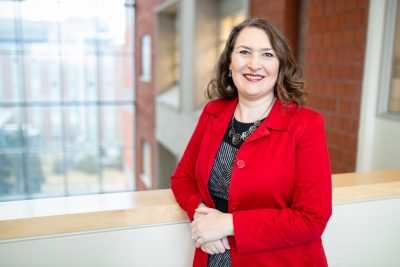
Dr. Rosalyn Juergens, a medical oncologist at the Juravinski Hospital and Cancer Centre, is the trial’s national chair.
“We couldn’t make these advances without our patient partners,” says Juergens. “Patients are vital members of our research team, and we are extremely grateful for their partnership in exploring these new and potentially improved treatment options.”
Aylan-Parker is on a four-week rotation of treatment with no evidence of the cancer progressing.
“I’m still here after almost five years,” he says. “I feel like the luckiest guy ever. And beyond my personal success in the trial, I’m happy to see it show so much promise for future lung cancer patients. It must be so rewarding for the doctors too, because now they have more hope for their patients.”
Follow-up trial
In 2017, the JHCC launched a second trial for Stage 4 lung cancer patients called BR34. This follow-up trial compares the combination of chemotherapy and immunotherapy treatment from the IND226 trial to a combination of immunotherapy drugs.
Jerseyville resident Diane Summerhayes, 71, joined the BR34 study two years ago after being diagnosed with Stage 4 lung cancer. She’s also doing extremely well, with minimal evidence of cancer at this point in her treatment regimen.
“I jumped right in when I was offered the chance to take part,” says Summerhayes. “I was prepared to try anything that might offer some hope.”
Before the introduction of immunotherapy in cancer treatment, the median survival for someone with Stage 4 lung cancer was about one year. These new treatments being studied at the JHCC help a patient’s immune system better fight the cancer.
For patients taking part in clinical trials similar to these two trials, the average survival time has almost doubled thanks to the introduction of immunotherapy on its own or combined with chemotherapy.
“In some studies, we’re seeing 15 to 20 per cent of people with Stage 4 lung cancer living beyond five years,” says Ellis.
Leaders in research
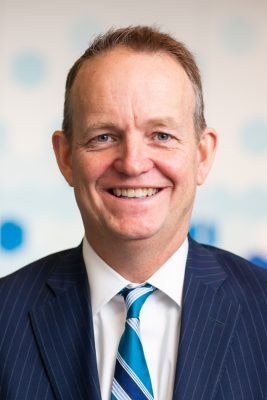
Dr. Ted Scott is vice president research and chief innovation officer for Hamilton Health Sciences
“HHS is one of the world’s leading health sciences research organizations thanks to these kinds of partnerships between physicians, researchers and patients,” says Dr. Ted Scott, vice president of research and chief innovation officer for HHS. “Together, we’re exploring life-changing care options for patients in Hamilton, in Canada and around the world.”
Two years into the BR34 study, Summerhayes continues to do office work for her family’s construction company.
“I do get short of breath but my quality of life is amazing,” she says. “There’s nothing I don’t do.”
This is the second story in a two-part series on clinical trials for Stage 4 lung cancer patients. Stories are in recognition of November as Lung Cancer Awareness Month.

